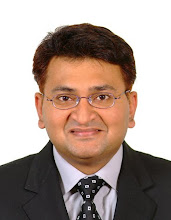One good thing I have learned as a consultant is: "Think answers, not analysis".
This means that any analysis should not be done for sake of analysis itself. Rather, it needs to be done to provide some actionable insights.
If I extrapolate this thinking to the overall learning and knowledge gathering process, the right approach seems to be to not go after knowledge to just become knowledgeable, but to seek knowledge to get closer to a defined goal.
Therefore, this thinking would suggest that one must start with a clear goal/question in mind, before one gathers knowledge to answer that question.
Is my thinking right?
I believe that until one is child, knowledge is good for its own sake. This is because at this stage, the child does not have full awareness to even have a sense to what questions to ask. He needs to know the world he lives in, before he can frame his goals and related questions. However, as we have seen in many cases, children loose interest in studies (e.g. abstract subjects such as Maths, etc). This is because they cannot relate that learning to its eventual use. Therefore, a good teaching approach would combine elements of knowledge dissemination for its own sake, as well as knowledge seeking driven by answering an interesting question.
However, for an adult, I believe that most of the learning should happen with a purpose/questions in mind.
Why?
I believe that an adult is already aware of the world around him, and can very well choose his goals. In this context, a purposeful knowledge seeking will make him more efficient and effective. He will be more satisfied as he acquires more knowledge and is able to answer his questions. Otherwise, the information content in today's world is huge. If one just memorizes facts and collects information, then he will be a good encyclopedia, but nothing more. In fact, he will nothing more than an inanimate computer.
I think that what makes Man superior species is his capability to problem solve and make decisions using his intelligence and knowledge. Hence, the purpose of knowledge acquisition needs to be to to answer questions, and to solve problems. This is how the world moves forward.
20 September 2010
Subscribe to:
Post Comments (Atom)

No comments:
Post a Comment